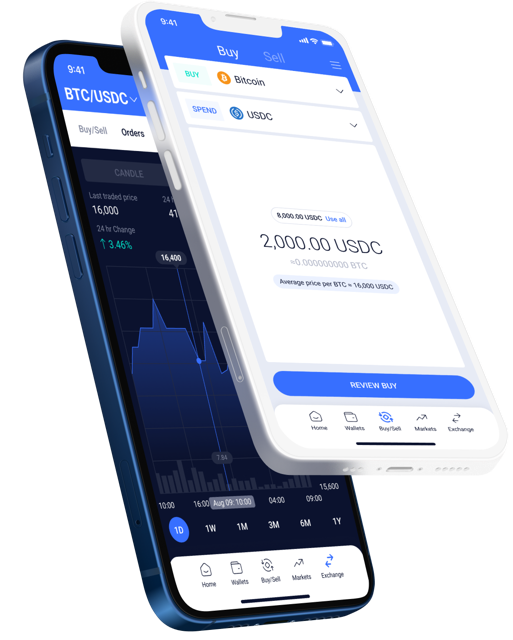
Our Company
Cyprus DAX-C Digital Assets Operation services LTD. is a company established to provide the services specified in the company's articles of association.
- Our company primarily serves its customers regarding the conversion of stable coins/ digital assets (e.g USDT) to TRY/USD/EUR/GBP.
- Our company does not provide Digital assets stock exchange or clearing services (multiple exchange), but but operates to open individual crypto wallets accepted at international standards to real and legal person customers, to allow stable coins to be bought and sold with 4 currencies traded in Turkish Market mainly TRNC ( North Cyprus) through this account and to provide transfers of these coins.
OTC Trading
What is Over-the-Counter Trading?
The Over-the-Counter (OTC) trading service (“OTC Trading Service”) allows our customers to place their orders and receive custom quotes instantly. OTC Trading is available 24/7, allowing transacted funds to be deposited and withdrawn upon trade confirmation.
Our OTC desk offers a special service model to individual and institutional users who want to make high-volume trading transactions. With our OTC service, transactions are carried out at affordable prices, without liquidity problems and reliably.
No additional registration is required to access the OTC Trading Service. If you are a Cyprus Dax-c client, you are automatically enrolled for it.
If you would like to find out more about establishing an account, and accessing the OTC Trading Service, please refer to the following links, or contact our Sales Team at [email protected] for more details.
Services provided
Cold wallets wallets are opened for our customers. Stable coins coins are bought, sold and transferred through these wallets. A platform is available to our customers, and they are requested to carry out their own transactions through this platform.
Transfers of stable coins are carried out through Tron © and BNB Smart Chain© networks. The other blockchains will be added in the future according to transaction volume as need.
Legal Framework
Our company, which was established in accordance with the TRNC (Turkish Republic of Northern Cyprus) legislation, operates based on the by laws of the company supervised and granted by the Department of Currency, Foreign Exchange and Development Fund Affairs and Ministry of Economy.
During the establishment of the company, compliance was also supervised by the Treasury and Accounting Department and the Ministry of Finance.
Transactions carried out by our company are open to inspection by various relevant government organizations.
MICA & VARA
Market in Crypto-Assets (MICA) is the first European Union regulatory framework governing crypto assets in Europe.
MICA is based on the best practices from the EU's existing regulations on traditional trading securities and applies them to crypto assets and stablecoins.
Our company although there is no legal enforcement the compliance department is fully aware of the needs and requirements of the upcoming banking regulation for the EU countries.
Thus we are enhancing and developing administrative and legal work for the MICA coming pre requisites.
DAX-C closely monitors the regulations and practices of the Regulatory Authority in Dubai (VARA) and in this context manages and supervises the cross-border financial security of Virtual Assets.
KYC
What is KYC?
KYC means “Know Your Customer.” It describes the process of verifying the identity of customers. The KYC process is performed to prevent illegal activities such as money laundering or fraud, in return protecting both company and client.
TRNC Law Number No:3 / 2024, Appendix 1 Chapter 1 / Official Gazette No:77
Why does KYC matter?
The extensive use of new technologies and the internet makes it necessary to define standards that help fight online fraud and financial crime e.g.
Money Laundering / Terror/Terrorist Financing / Corruption
The KYC procedure enables us to identify and verify the identity of our customer and to ensure that the customer is actually who they say they are. As part of Due Diligence, the aim of the KYC check is to prevent business relationships from being established with persons who are associated with terrorism, corruption, or money laundering, among other things.
How does the KYC processes work?
Document Verification – The government-issued ID document of the individual is verified for forgery or any other issue.
Face Verification / Liveness Check – To identify any spoof attacks on time, face verification checks are performed to ensure the live presence of the customer.
Address Verification – Proof of Address (POA) is obtained that verifies the address on government-issued identity documents against POA.
Digital Sustainability
Consumers are increasingly aware of the importance of sustainability and want to buy from brands that operate responsibly. In fact, consumers of all generations are more likely than ever to support sustainable and socially responsible businesses.
Government regulations will also play a role in the future of digital sustainability. In the US, policies have been put in place to encourage responsible development of digital assets and limit associated carbon emissions. Similarly, the European Union requires all companies to disclose their greenhouse gas emissions.
We use software and technological infrastructure that can be made more digitally sustainable.
We strive to ensure digital sustainability within our organization by choosing to partner with environmentally responsible third-party providers for our technology needs. From hosting services to licensed software subscriptions, we ensure that our technology partners are committed to digital sustainability.
Some of the other core principles of digital sustainability that our organization considers include:
Commitment to Renewable Energy and Reducing Dependence on Fossil Fuels
Increase Operational Efficiency
Promote Responsible Employee Behaviour
Support Innovation and the Impact Economy
Embrace Digital Resilience
Contact Us
We are here to help you with the digital assets.
-
Cyprus DAX-C Digital Assets Operation Services LTD.
Abdi İpekçi Cad. No:8 Yenişehir/Lefkoşa, KKTC

